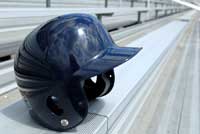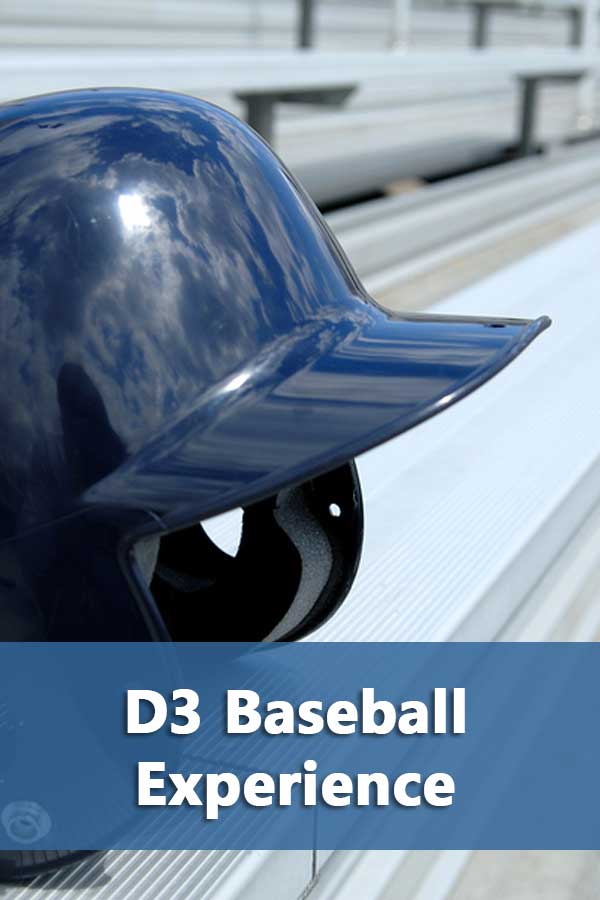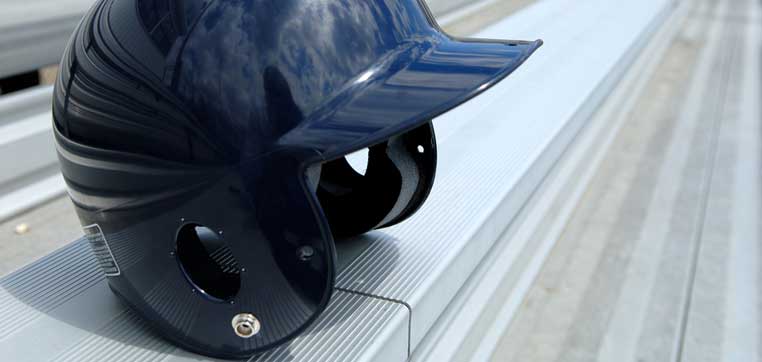 Last week I watched my son played at his college’s annual Blue and White game. It’s just an intra-squad scrimmage at the end of their Fall practices followed by a family cook-out. It was cold but it was great to spend the weekend with him. He gave us a tour of HIS campus which is definitely a different campus as sophomore than it was as a “prospie.”
Last week I watched my son played at his college’s annual Blue and White game. It’s just an intra-squad scrimmage at the end of their Fall practices followed by a family cook-out. It was cold but it was great to spend the weekend with him. He gave us a tour of HIS campus which is definitely a different campus as sophomore than it was as a “prospie.”
Don’t worry, this isn’t a nostalgia post. It’s just visiting him got me thinking about the realities of D3 college baseball and what we experienced in high school ball. First, I have to preface this that there is some very competitive, high-caliber D3 baseball with teams that have a strong tradition of sending players pro. But that’s not the D3 baseball experience for most and it certainly isn’t the case at my son’s school although they did have someone in the minors the year before last. This past year, they have two or three in graduate school.
I also have to say that I only have the limited D3 baseball experience of this one school and the several teams I’ve seen them play in a conference tournament. Things could be totally different at the majority of other D3 schools. I don’t know. But if nothing else, my observations may give you something to ask about as you go through the recruiting process.
Parent Boosters are Still Needed
To start with, the family cook out was paid for by the parents. Each family brought something and a few volunteered to man the grills in the cold. The drinks were paid for by the parent booster club. The booster club also provides the players with lunches between double headers at home games and I think snacks during the spring Florida trip.
About that Florida trip, the players pay for the cost. I know at some schools my son considered, the team did fund-raisers for the trip and probably some other schools actually pay for it. It also varied from school to school how much equipment was provided to the players. At some schools, the player only had to bring his glove, at others, the school only provides the jersey.
I’m sure most parents of high school players don’t expect to be still paying for their sons to play baseball in college. If they play D1 or D2, they won’t. But you can’t make such an assumption in D3.
Pitchers Hit
Some other assumptions that don’t hold up in D3 baseball are that pitchers only pitch and never hit. I remember that at almost every showcase camp my son attended during high school, there was a group of pitchers who chose not to go through the hitting part. Given that most of them weren’t trying to decide between D1 and going pro, that was probably a mistake. Some of the best hitters on my son’s college team are pitchers. Not just relief pitchers but starters. They also play other field positions and play them well.
Multi-Sport Athletes are Real
Then there are also a few who play more than just D3 baseball. One player wasn’t at the game because he was playing a soccer game that day. There have also been players who also played on the football team. I know that at the big high schools in Texas, players are discouraged from playing more than one sport after their freshman year. Among the senior baseball players at our local high school, no one played another sport.
Of those players, one was red-shirted at a D1 school, one went to a D2 school, and one to a Junior College. If anyone had told the rest of those players or their parents as high school sophomores that most of them should start looking at D3 schools, they would have laughed at you.
D3 Baseball has the Most Players
This post isn’t to belittle the D3 baseball experience. I think that if more high school players were realistic about their abilities and understood the opportunities of D3 baseball, they might not give up their fall sport just to focus on baseball. Or they might spend a some time on activities other than baseball that will help them get academic scholarships to college.
My son is doing what all of his high school teammates assumed they would do, go to college and play baseball. Most of them aren’t playing because they never really understood the process or thought they were too good for anything less than D1 schools. Would you rather not play baseball than play at a D3 school?



3 thoughts on “D3 Baseball Experience”